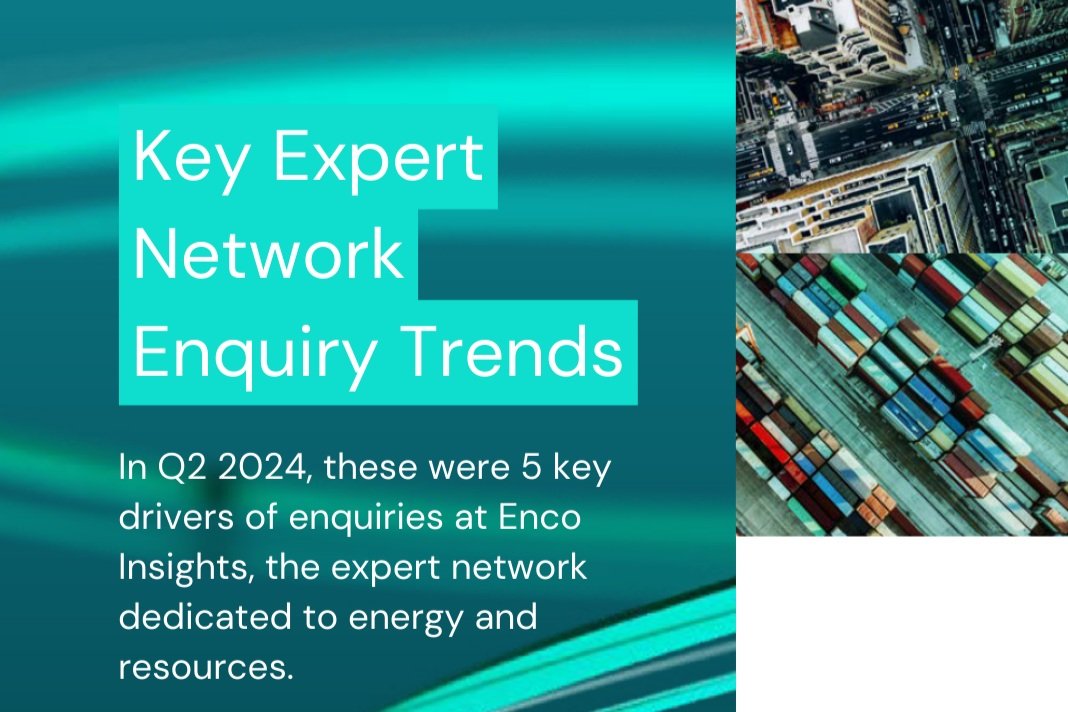Enco Advisor: Daf Davies, Commodities AI Leader
Daf Davies built his career in physical trading at organisations including Goldman Sachs and Trafigura. At the latter he served as Head of Non-Ferrous and Refined Metals Trading for Africa. He pivoted to trading technology, founding ventures exploring new uses for blockchain, the cloud, IoT and AI. Daf is the founder and director of Deus AI, which provides AI solutions for oil and gas companies.
Enco Insights: You decided to turn your focus from physical trading to trading technology. Can you tell us more about your career - and this particular journey?
Daf Davies: I spent most of my career trading physical commodities up and down the supply chain. At Trafigura, Goldman Sachs and other funds and trading houses, I also spent time on the ground. At Trafigura I ran the copper concentrates blending and trading business out of Mexico and their Africa trading business on a commercial level.
As a commodities trader I spent a lot of time looking at the detail and asking myself where the opportunities were to generate returns for those businesses. And I found those returns getting smaller and smaller, or more and more difficult to find.
This got me thinking: where is the value in a commodity trading supply chain? I came to the conclusion that it was from greater transparency, visibility and efficiencies being driven by new technologies; from the ability for people to communicate better, to share information and find each other more effectively. It was a transition driven by looking for where the money was likely to be made or lost and aligning myself with that skill set.
Find an advisor for your next project
Enco Insights: What are the key technology issues on the agenda of the commodities leaders you support?
Daf Davies: What business leaders are saying to me at the moment is that they're most interested in data and document management. Companies have spent a lot of time thinking about and understanding how to manage the risks around data security. The conversation is now moving more onto data availability and usefulness. We find that any new technology that comes into a business with the aim of reducing costs or stopping errors needs high quality, high volume data to be successful.
So a lot of our engagements are about curating, gathering and organising data and putting it into a structured and useful manner. This allows businesses to understand the interrelationships and dependencies between those data and documents in order to implement strategies to drive the business forward.
“Companies have spent a lot of time thinking about and understanding how to manage the risks around data security. The conversation is now moving more onto data availability and usefulness.”
In terms of document management, what we find in physical commodity supply chains is that it's very document heavy, and very human. There's a lot of effort and a lot of errors that can go on in that process. Operators typically collect, organise, scan, print, recollect and resend documents multiple times during a shipment. It takes an awful lot of effort and there’s a high potential for errors there.
As a result of these factors business leaders are increasingly looking at how can they adopt technologies in order to drive efficiencies and risk management in the document handling process. Consequently, we spend a lot of our time mapping out how those documents work between each other for companies, so they have a digital understanding of how those documents are related. From that point on, they can start to adopt and implement the right technologies to help.
Become an Enco Insights Advisor
Enco: What is your personal motivation for signing up to the Enco Insights advisor network?
Daf Davies: The Enco Insights network is interesting to me because I think I can bring a combination of commodity trading and technology expertise to the conversations that Enco are creating among both their advisors and their customers. And I think there's going to be increasingly interesting conversations around how companies are going to be adopting technology in the commodity space.
It's a fairly niche area where it can be hard to find people who have that combined skill set, or groups of people, so I think it's important for us all to come together on one platform. Enco will be a forum for these discussions going forward, which I want to be a part of.





